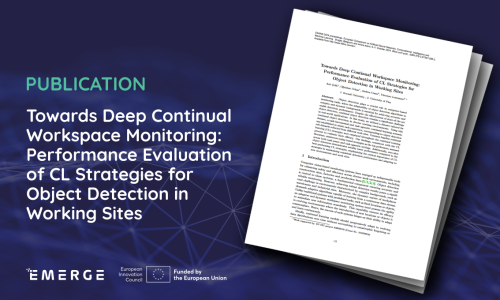11 October 2024


Computer vision-based monitoring systems have emerged as indispensable tools for enhancing safety and efficiency across diverse work environments, including construction sites, factories and production lines. Object detection is central to these systems, a fundamental component ensuring accurate and reliable monitoring. However, achieving robust detection results poses a significant challenge in environments characterized by complex backgrounds, such as warehouses and industrial sites. Moreover, the dynamic nature of workplaces demands adaptive algorithms capable of learning from a continuous data stream.
In this work, EMERGE partners from the University of Pisa utilized a dataset tailored for continual object detection in diverse working environments. Using this dataset, a task-incremental and task-agnostic continual learning scenario was established in which each experience, corresponding to object detection sub-datasets collected from different work sites. Common baseline continual learning (CL) strategies were employed throughout the continual training process to evaluate their efficacy. Their findings, consistent with the CL literature, underscore replay-based strategies as the top performers, assessed across both task-aware and task-agnostic settings. Additionally, zero-shot object detection demonstrates notably lower performance compared to the best-performing CL strategies, emphasizing the critical importance of CL strategies in maintaining consistent detection performance and adapting to new environments and work sites.
Read the paper in the link below.


